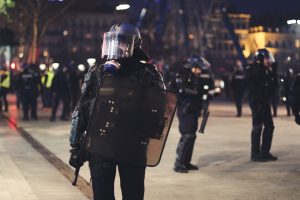Aggressive drivers would be the first to tell you that traffic cameras are a major inconvenience. A recent class-action lawsuit was filed Chicago, contesting tickets given to motorists who had been caught running red lights. The lawsuit reached the Illinois Supreme Court before being struck down. The city had always stood behind the right to enforce these traffic laws under a “homefield advantage” policy, and eventually filed an ordinance in 2006. The class-action suit was aimed to dispute any traffic tickets given between 2003-2006. Read more
Tag Archives: chicago

Bad Reception: Web-TV Service Avoids Lawsuit
There seems to be a buzz in the air around New York City recently and cable/satellite providers aren’t happy about it. The internet-powered television service, Aereo, allows users to enjoy basic programs for an incredibly small cost and has thrived despite a growing number of lawsuits. Companies such as Cablevision contend that this alternative to their offerings violates certain copyrights and contracts. Aereo argues that since their units include small antennas, the analog signal they pick up is free over the airwaves and not breaking any laws. Aereo, which is backed by media executive Barry Diller, plans to grow their service area over the next few months including major cities such as Washington D.C., Boston, and Chicago. Read more
Chicago Police Tortured Confessions out of Suspects
Two men who were allegedly tortured by Chicago police during former Detective Commander John Burge’s tenure have been awarded over $7 million in damages to settle their lawsuit against the city. Michael Tillman spent over 20 years in prison for a murder he did not commit as a result of Burge’s military-inspired torturing. Tillman was approved for $5.3 million of the settlement money. The other $1.8 million was issued to David Fauntleroy, who spent 23 years in jail on the strength of another torture-induced confession to murder and armed robbery. If the Chicago City Council approves both settlements, the total taxpayer cost of Burge’s case will exceed $40 million. Because of the timing of the settlement, Chicago Mayor Richard M. Daley will not be questioned about his involvement with Burge’s reign of terror, which is something the whole city was looking forward to.
Pregnant Chicago Inmates No Longer Shackled During Childbirth
That title is not a metaphor for anything. Despite regulations requiring prison guards to undo any restraints on pregnant prison inmates during labor, many women were shackled and strapped down up to and, sometimes, during the delivery of a baby. Guards apparently ignored not only the law, but also medical personnel pleading for them to unlock the handcuffs to prevent pain, discomfort, or other complications. The law banning such restraint has been in the books since 1999, but apparently has not been followed by the employees of Cook County Jail. Some 80 women stepped forward in this class action lawsuit, all to make claims of poor treatment during labor.
$6.2 Million Settlement for Arrested Protestors
Last week, the City of Chicago agreed to settle with the group of Iraq War protesters who were unjustly arrested in 2003 to the tune of $6.2 million. The Chicago Tribune reports that an appellate court decided last year that the 800 citizens were detained or arrested without warrant. Since then, the city and the protesters have been in arbitration to settle the case outside of the court system. Though the settlement still has to be approved by the city council, it is likely less expensive than continuing to litigate.
The decision marks a stern victory for the First Amendment as well as the Fourth, which protects against unlawful search and seizure. In the wake of the appellate decision, the City of Chicago has changed its tactics against protesters, as seen in the recent Occupy protests. Now, the police apparently give the protesters ample time to leave before they are arrested. The question for the police and the protesters alike is now, “Is that enough to guarantee the first amendment right to assemble?”



